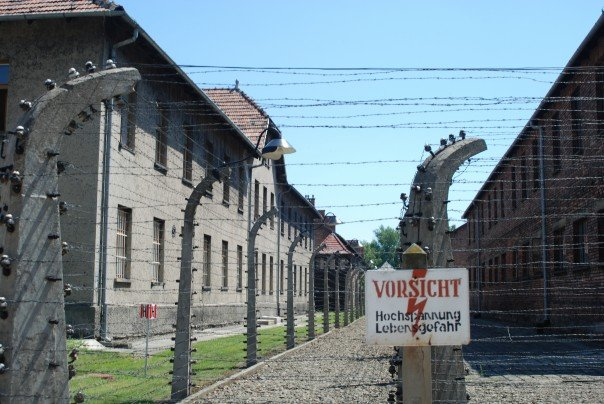Reinhold Hanning, a former guard at Auschwitz, was sentenced to jail for being an accessory to the murder of at least 170,000 people in the Nazi concentration camp in occupied Poland during World War II.
Judge Anke Grudda rejected the defense’s argument that Hanning had never killed, beaten, or abused anyone himself. She pointed out that Hanning chose to serve there and had helped run it.
“It is not true that you had no choice; you could have asked to be transferred to the war front,” Grudda told Hanning as she read out the verdict.
She would not accept that Hanning had worked at the camp for two and a half years and was promoted twice without any idea of what was happening at the death camp. “That shows that you had proven your value as a willing and efficient henchman in the killings,” Grudda said.
Hanning’s lawyer, Johannes Salmen, said that they would appeal. “I assume he will not be fit for a custodial sentence. That means he will not have to go to jail,” Salmen said.
The 20-day trial, spread out over four months, saw testimony from about a dozen Holocaust survivors who detailed experiences such as seeing piles of dead bodies and smelling burnt flesh.
Hedy Brohm’s parents died in Auschwitz. She said, “I am grateful and pleased to be here at this moment when justice was finally done after 70 years. My murdered mother and father can perhaps rest in peace. It’s a dream I never dreamed to come true.”
Jewish groups also welcomed the news. “Today’s verdict is very clear: (Hanning) was complicit in mass murder. He was part of a merciless killing machine,” said Ronald Lauder, president of the World Jewish Congress. “Without the active participation of people like him Auschwitz would not have been possible.”
Hanning was silent and emotionless for most of the trial. In April, he did give an apology to the victims and said that he regretted being part of a “criminal organization” that killed so many and caused so much suffering. “I’m ashamed that I knowingly let injustice happen and did nothing to oppose it,” he read from a prepared speech.
Hanning was not charged with being directly involved in any killings. Prosecutors and dozens of plaintiffs accused him of helping Auschwitz to function.
In 2011, the trial of former Auschwitz guard Ivan Demjanjuk set a precedence with his conviction. Last year’s trial of Oskar Groening, the “Bookkeeper of Auschwitz,” saw him receive a sentence of four years for being an accessory to the murders of 300,000 people.
None of these convictions are definitive, though. Demjanjuk appealed but died before a ruling was reached. Groening’s appeal is still being considered by the court.
These are likely to be among the last trials concerned with the Holocaust. Other than Hanning, one man and one woman in their 90s are accused of being accessories to mass murder at Auschwitz.
